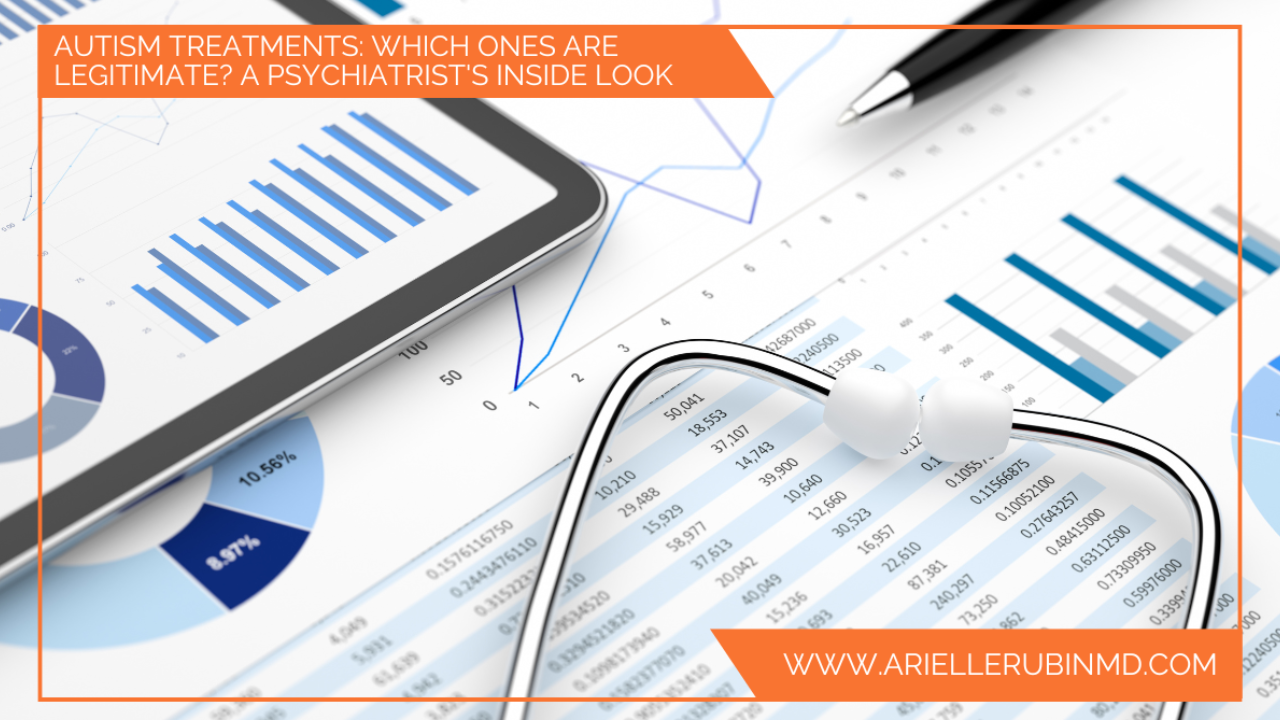Autism Treatments: Which Ones Are Legitimate? A Psychiatrist's Inside Look
Apr 02, 2025
Protecting Your Family from False Promises
I'm sharing this not just as a board-certified psychiatrist but as someone who has walked this path with my family members. I've been where you are, searching the Internet for solutions, weighing different treatment options, and trying to separate genuine help from empty promises. The journey can feel overwhelming, and this vulnerability makes us susceptible to those offering quick fixes and miracle cures.
My dual perspective as a medical professional and a family member has shown me how crucial it is to protect our community from misinformation. I've seen both sides: the scientific evidence behind treatments as a doctor and the emotional pull of promising “miracle treatments” as a family member. I'm passionate about helping families develop strategies to distinguish fact from fiction and identify who truly has their child's best interests at heart versus those looking to make a quick dollar.
Recently, I came across an insightful article by an OCD specialist that resonated deeply with my experiences in the autism field. While the article focuses on OCD treatment scams, the parallels to autism-related schemes are striking and worth sharing. I've included the full article below - take a moment to read through it and notice how these same warning signs apply to many autism "treatments" being marketed today.
(Full article from OCD specialist below)
https://www.wsps.info/articles/20-tips-on-being-a-good-ocd-treatment-consumer
The Desperate Search for Solutions
Parents of autistic children often find themselves navigating a maze of treatment options, some legitimate and others predatory. The desire to help our children can make us vulnerable to those who promise quick, dramatic results. However, it's crucial to remember that autism and its associated mental health challenges are complex conditions that typically require comprehensive, evidence-based approaches.
Red Flags to Watch For:
Here are key warning signs that should raise concern when evaluating potential treatments or interventions for autism and mental health needs:
False Marketing Tactics
This includes relying heavily on emotional testimonials stories rather than peer-reviewed research. If they claim to have exclusive, mysterious knowledge that "mainstream medicine doesn't want you to know about," proceed cautiously.
Unrealistic Promises
Be wary of any treatment that guarantees:
- Complete "recovery" or "cure."
- Immediate results
- Solutions for multiple unrelated conditions
- Universal success rates
Lack of Scientific Rigor
Legitimate treatments should:
- Be backed by peer-reviewed research
- Have precise, explainable mechanisms of action
- Be supported by recognized experts in the field
- Be transparent about their limitations and potential risks
The "Alternative" Treatment Trap
Some providers market their approaches as "natural," "ancient," or "holistic" alternatives to evidence-based treatments. While complementary approaches have their place as part of a comprehensive treatment plan, be skeptical of those who:
- Dismiss all conventional treatments as harmful
- Claim their method is the "only true way"
- Use complicated pseudoscientific language to confuse the consumer
Protecting Your Family
Remember that legitimate autism and mental health support:
- It takes time, often trialing different approaches, and consistent effort
- Involves clear, measurable goals
- Is transparent about its methods and limitations
Moving Forward
As a community, we must stay vigilant against those exploiting our hopes for profit. The journey with autism and mental health challenges isn't always straightforward, but there are evidence-based approaches that can make a genuine difference.
If you're considering a new treatment or intervention, take time to:
- Research the provider's credentials
- Look for peer-reviewed studies
- Consult with trusted healthcare professionals
- Connect with other families in the autism community
- Trust your instincts if something seems too good to be true
Final Thoughts
While hoping for quick solutions is natural, sustainable progress usually comes through consistent, evidence-based support and learning. As we continue to learn more about autism and mental health, our approaches will evolve - but they should always be grounded in science and ethical practice.
While I don't promise to have all the answers – because anyone who claims they do is disingenuous – I promise to help guide you through the overwhelming sea of information with my professional expertise and understanding as a family member.
In the Autism Roadmaps Community, we partner with you on this journey, offering evidence-based guidance while acknowledging that each family's path is unique. If you're looking for a place where science meets compassion and where we can work together to find real, sustainable solutions for your family, I invite you to learn more about our community below.
Get notified when new blogs are posted and get exclusive insights by joining my weekly newsletter!

